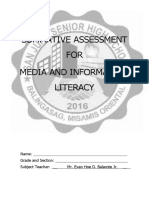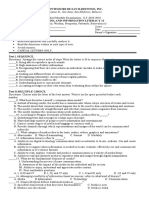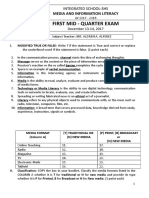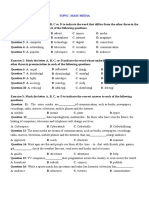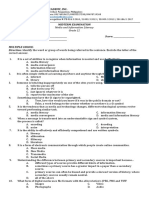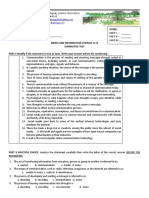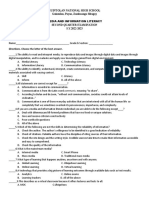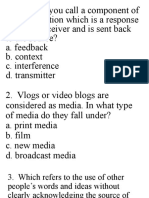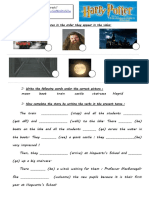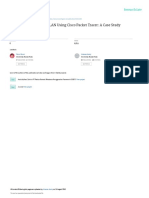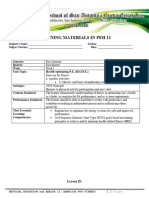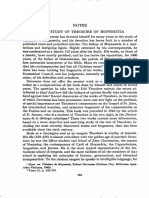0% found this document useful (0 votes)
80 views2 pagesIntroduction To Mass Comm Test Answer
The document consists of a series of questions and prompts related to mass media, including true/false statements, definitions of key terms, matching exercises, and assessments of various media forms. It covers topics like media theories, practices, and the impact of technology on mass media. Additionally, it emphasizes the importance of media literacy and critical thinking in understanding media influence.
Uploaded by
mosesamnon517Copyright
© © All Rights Reserved
We take content rights seriously. If you suspect this is your content, claim it here.
Available Formats
Download as DOCX, PDF, TXT or read online on Scribd
0% found this document useful (0 votes)
80 views2 pagesIntroduction To Mass Comm Test Answer
The document consists of a series of questions and prompts related to mass media, including true/false statements, definitions of key terms, matching exercises, and assessments of various media forms. It covers topics like media theories, practices, and the impact of technology on mass media. Additionally, it emphasizes the importance of media literacy and critical thinking in understanding media influence.
Uploaded by
mosesamnon517Copyright
© © All Rights Reserved
We take content rights seriously. If you suspect this is your content, claim it here.
Available Formats
Download as DOCX, PDF, TXT or read online on Scribd
/ 2









